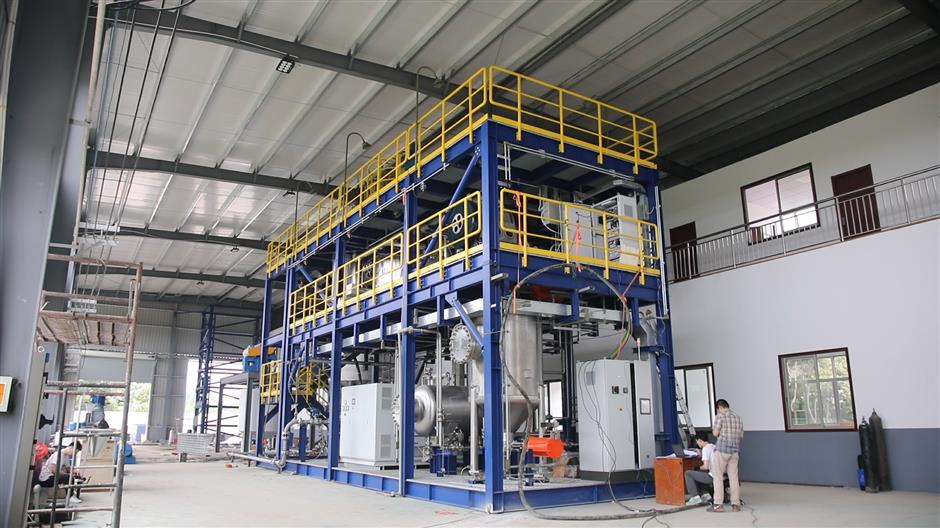Pudong facility converts waste to fertilizer

The factory in the Pudong New Area uses technology of hydrothermal reaction to process wet waste.
A facility that can process 100 tons of wet waste a day has been set up in the Pudong New Area, using technology developed by a team from Shanghai Jiao Tong University.
The facility in Gaodong Town uses hydrothermal reaction, also known as wet oxidation, to process waste. It stimulates the process of how organic matter is turned into chemicals and fuel in nature but speeds it up under high temperatures and high water pressure.
“Each batch of wet waste can be transferred into liquid and solid fertilizers within an hour,” said Jin Fangming, a professor leading the research. “In the whole process, it will not generate any stink or pollutants."
Jin said the liquid produced can be used as agricultural or aquatic fertilizer directly. The solid residue can not only be used as fertilizer, but also to make products to improve polluted soil, sandy land, polluted air and water.
Jin said traditionally household garbage is either burned or ends up in landfills. But burning causes poisonous pollutants, and landfills are also likely to pollute the environment as they produce leakage and methane. Composting is a new choice for some families to deal with their kitchen waste, but the process is long and inefficient, and also produces odor and residue.
“Instead, the hydrothermal-reaction solution is more eco-friendly as it does not produce odors or pollutants,” she said.
Her team began testing the technology in a canteen on a campus of the university in Minhang District two years ago and dealt with 100 kilograms of kitchen waste a day.
In March this year, they received investment from Zhengjun Environmental Science and Technology Co and the two built the factory in Gaodong to handle 100 tons of wet waste a day. The solution is so efficient that it covers an area of just 60 square meters.
The factory began pilot operation on July 1 and has proven very efficient. It is now ready for real industrial application.
Jin has been researching generating electricity from household waste by hydrothermal-reaction technology for more than 20 years. She has also found solutions to create different conditions for the reaction to produce highly value-added products, such as humic, formic, acetic and lactic acids.

Jin Fangming, a professor leading the research, demonstrates the application of liquid and solid fertilizers produced from wet waste.















